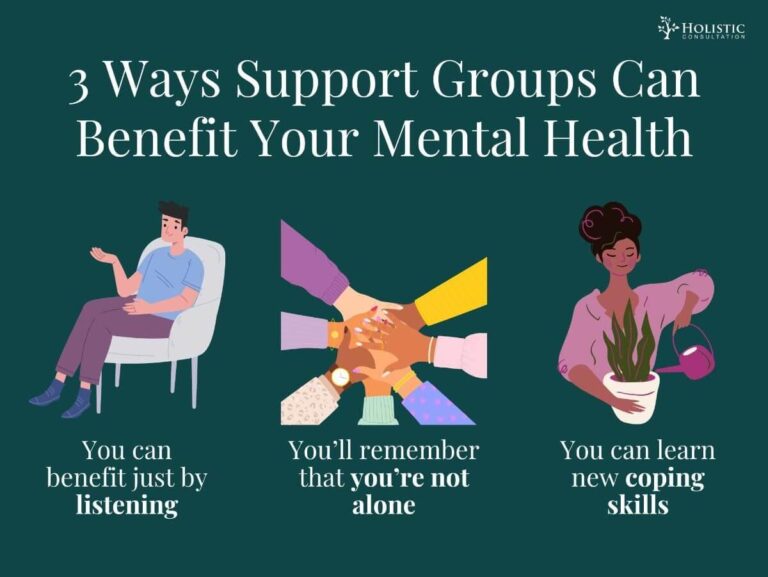Supporting a loved one through mental health challenges can be a deeply rewarding yet complex journey. Weather it’s a family member,friend,or partner,knowing how to offer meaningful support without overstepping boundaries is essential.In this article, we’ll explore practical ways to provide care, foster understanding, and encourage healing, all while maintaining your own well-being. If you’re looking for thoughtful guidance on being a steady source of support during difficult times, you’re in the right place.
Table of Contents
- Understanding the Signs and Symptoms of Mental Health Struggles
- Effective Communication Strategies to Foster Trust and Openness
- Practical Ways to Provide Emotional support Without Overstepping Boundaries
- Connecting Your loved One with Professional Resources and community Help
- Insights and Conclusions
Understanding the signs and Symptoms of Mental Health Struggles
Recognizing when a loved one is experiencing mental health difficulties can be challenging, especially since symptoms often manifest in subtle or varied ways. It’s significant to remain attentive to changes in behavior and mood, which might include withdrawal from social activities, persistent sadness or irritability, drastic shifts in sleeping or eating patterns, and unusual expressions of anxiety or fear. Physical symptoms like unexplained aches or fatigue can also be a sign of underlying emotional distress. Awareness of these signs enables you to approach the situation with empathy rather than judgment.
Beyond mood changes,cognitive signs such as difficulty concentrating,erratic decision-making,or a noticeable decline in work or school performance can indicate that someone is struggling mentally. Emotional expressions—like increased frustration,hopelessness,or sudden emotional outbursts—are crucial indicators to take seriously. Some common signs to watch for include:
- Loss of interest in previously enjoyed activities
- Unexplained irritability or anger
- Feelings of worthlessness or guilt
- Substance abuse or risky behaviors
- Changes in personal hygiene or appearance
Vigilance paired with open communication ensures you can provide informed support when your loved one needs it most.
Effective Communication Strategies to Foster Trust and Openness
Building a safe space where your loved one feels truly heard begins with active listening.This means giving them your full attention without interrupting, judging, or rushing to offer solutions. Encourage expressions by using encouraging nods, affirming comments like “I understand.” or “That sounds tough.”, and maintaining open body language. Remember, sometimes just being present without trying to fix the situation can foster more trust than any advice. Consistency in your responses also reinforces reliability, making it clear that you are a dependable source of support no matter what.
Clear and compassionate dialog is another cornerstone.Aim to use “I” statements to communicate your feelings without placing blame or pressure, such as “I feel concerned when you seem down, and I want to help.” Being transparent about your own emotions can pave the way for mutual openness. Consider these approaches to deepen communication:
- ask open-ended questions that invite elaboration rather than yes/no answers.
- Validate their experiences, even if they differ from your own viewpoint.
- Set aside distractions—turn off phones and find a quiet space for talks.
- Respect boundaries; let them guide the pace and depth of sharing.
Together,these practices cultivate an surroundings where trust flourishes,making it easier for your loved one to share without fear of judgment or misunderstanding.
Practical Ways to Provide Emotional Support Without Overstepping Boundaries
One of the most impactful ways to offer support is by actively listening without jumping to solutions or judgments. This means creating a safe space where your loved one feels heard and validated — even when it’s difficult to understand their experience fully. Use gentle affirmations like, “That sounds really tough,” or “I’m here for you,” to show empathy without pushing them to open up before they’re ready. Remember, asking open-ended questions rather than probing for information fosters honest communication and builds trust over time.
Respecting personal boundaries is crucial, so it helps to clarify with your loved one how they prefer to be supported. They might appreciate occasional check-ins but may need space at other times. You can offer practical support by:
- Helping with daily tasks that may feel overwhelming
- Encouraging healthy routines without pressuring them
- Sharing information about resources gently and respectfully
- Being consistent in your availability, showing reliability
Balancing compassion with respect for autonomy empowers your loved one in their healing journey while strengthening your relationship.
Connecting Your loved One with Professional Resources and Community Help
When supporting a loved one through mental health challenges, connecting them with the right professional resources can make a profound difference.Encourage them to seek guidance from licensed therapists, psychiatrists, or counselors who specialize in their specific needs. These professionals can offer personalized treatment plans, coping strategies, and medical interventions if necessary. It’s equally critically important to respect their pace and readiness to engage, offering to assist in researching options or scheduling appointments without overwhelming them.
Beyond clinical support, integrating community help enriches their recovery journey by fostering social connections and reducing isolation. Exploring local support groups, mental health organizations, and wellness programs can provide both practical assistance and emotional solidarity. Consider suggesting activities such as:
- Peer support Groups: Spaces where individuals share experiences and encouragement.
- Community Workshops: Educational sessions focused on mental wellness and stress management.
- Volunteer opportunities: Engagement that promotes purpose and connection.
By weaving together professional care and community engagement, your loved one gains a complete support network that nurtures healing and resilience.
Insights and Conclusions
Supporting a loved one through mental health challenges is a journey that requires patience, understanding, and unwavering compassion. While it can be difficult at times, your presence and support can make a profound difference in their recovery and well-being. Remember, you don’t have to have all the answers—sometimes, simply listening and showing that you care is enough. if you find yourself struggling, don’t hesitate to seek guidance from professionals or support groups. Together, with empathy and open communication, you can help create a safe and nurturing environment for your loved one to heal and thrive.

